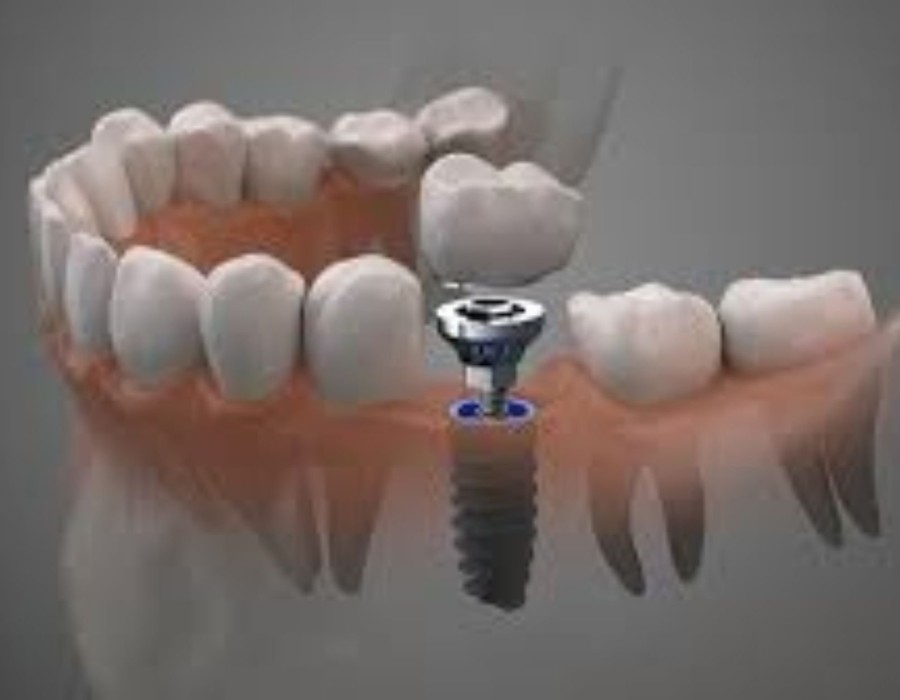Dental implants are a popular and effective solution for replacing missing teeth, offering a long-term option that closely mimics the function and appearance of natural teeth. However, many people wonder about the lifespan of dental implants and what factors influence their longevity. This blog will guide you through the lifespan of dental implants, factors affecting their durability, and tips for ensuring they last as long as possible. If you are considering dental implant treatment in Vijayawada, understanding these aspects can help you make an informed decision.
What is a Dental Implant?
A dental implant is a titanium post surgically inserted into the jawbone as an artificial tooth root. It is designed to anchor a replacement tooth or bridge securely. The implant integrates with the jawbone through osseointegration, which typically takes several months. Once fully integrated, a crown or prosthetic tooth is attached to the implant, completing the restoration.
Lifespan of Dental Implants
On average, dental implants last 10 to 15 years, and many can last a lifetime with proper care. Several factors influence the longevity of dental implants, including the implant's quality, the surgical technique used, and the patient’s overall oral health.
Factors Influencing the Lifespan of Dental Implants
1. Oral Hygiene and Care
Maintaining good oral hygiene is crucial for the longevity of dental implants. Regular brushing, flossing, and routine dental check-ups help prevent infections and gum disease, which can lead to implant failure. Patients with dental implants should be diligent about their oral care routine to ensure their implants remain healthy.
2. Bone Health
The success of a dental implant largely depends on the quality and quantity of the jawbone. If the jawbone is too thin or weak, the implant may not integrate properly, leading to complications. Bone grafting procedures can sometimes be performed before implant placement to enhance bone density, improving the chances of a successful outcome.
3. Lifestyle Factors
Certain lifestyle choices can significantly affect the lifespan of dental implants. For example:
- Smoking: Tobacco use can hinder healing and increase the risk of implant failure. Quitting smoking before and after the procedure can improve the chances of success.
- Diet: A balanced diet rich in vitamins and minerals supports healing and oral health. Avoiding excessive sugar and processed foods can help prevent complications.
4. Pre-existing Health Conditions
Chronic conditions such as diabetes, heart disease, or autoimmune disorders can impact the healing process and the success of dental implants. To ensure appropriate measures are taken, it’s essential to discuss any underlying health issues with your dentist or oral surgeon before the procedure.
5. Regular Dental Visits
Routine check-ups with your dentist are vital for monitoring the health of your dental implants and surrounding tissues. Regular professional cleanings help remove plaque and tartar buildup, reducing the risk of infections and complications.
6. Prosthetic Maintenance
The crown or prosthetic attached to the implant may require adjustments or replacement over time. Ensuring the prosthetic fits well and does not put undue pressure on the implant can help maintain its integrity.
Signs of Implant Problems
Being aware of potential issues with dental implants can help you address problems early on. Some signs that may indicate complications include:
- Pain or Discomfort: Persistent pain around the implant site could indicate an issue with the implant or surrounding bone.
- Swelling or Infection: Redness, swelling, or discharge from the implant area may signal an infection that needs immediate attention.
- Mobility: If the implant feels loose or mobile, it may require evaluation by your dentist.
Conclusion
Dental implants offer a durable and effective solution for missing teeth. They have an average lifespan of 10 to 15 years and the potential for a lifetime with proper care. Factors such as oral hygiene, bone health, lifestyle choices, and regular dental visits play significant roles in the longevity of implants. Taking proactive steps to maintain your oral health and staying vigilant for any signs of complications can help ensure that your dental implants serve you well for many years.
If you’re considering dental implant treatment in Vijayawada or already have them, consult with your dentist for personalized advice on maintaining their longevity and your overall oral health.





Comments